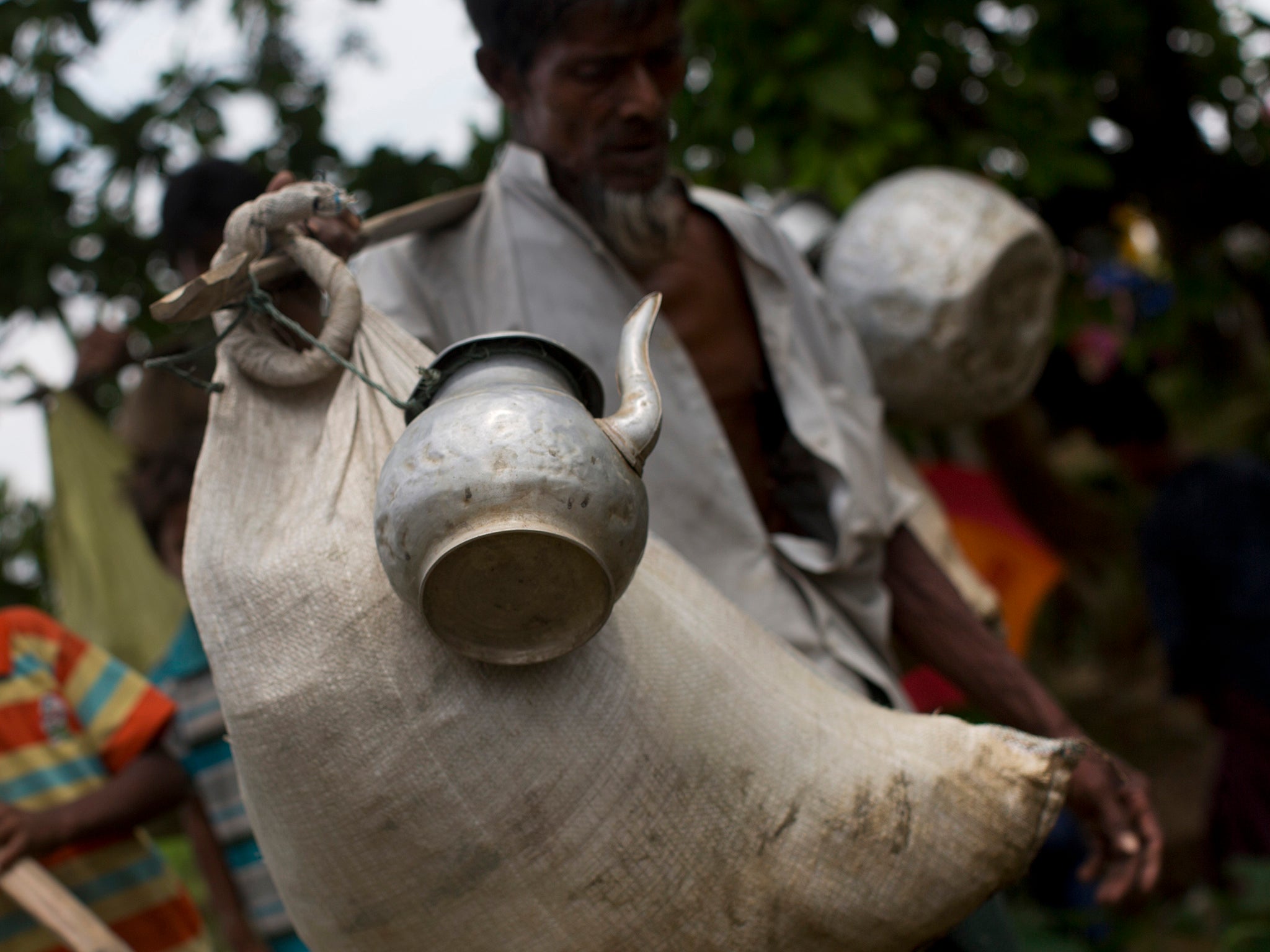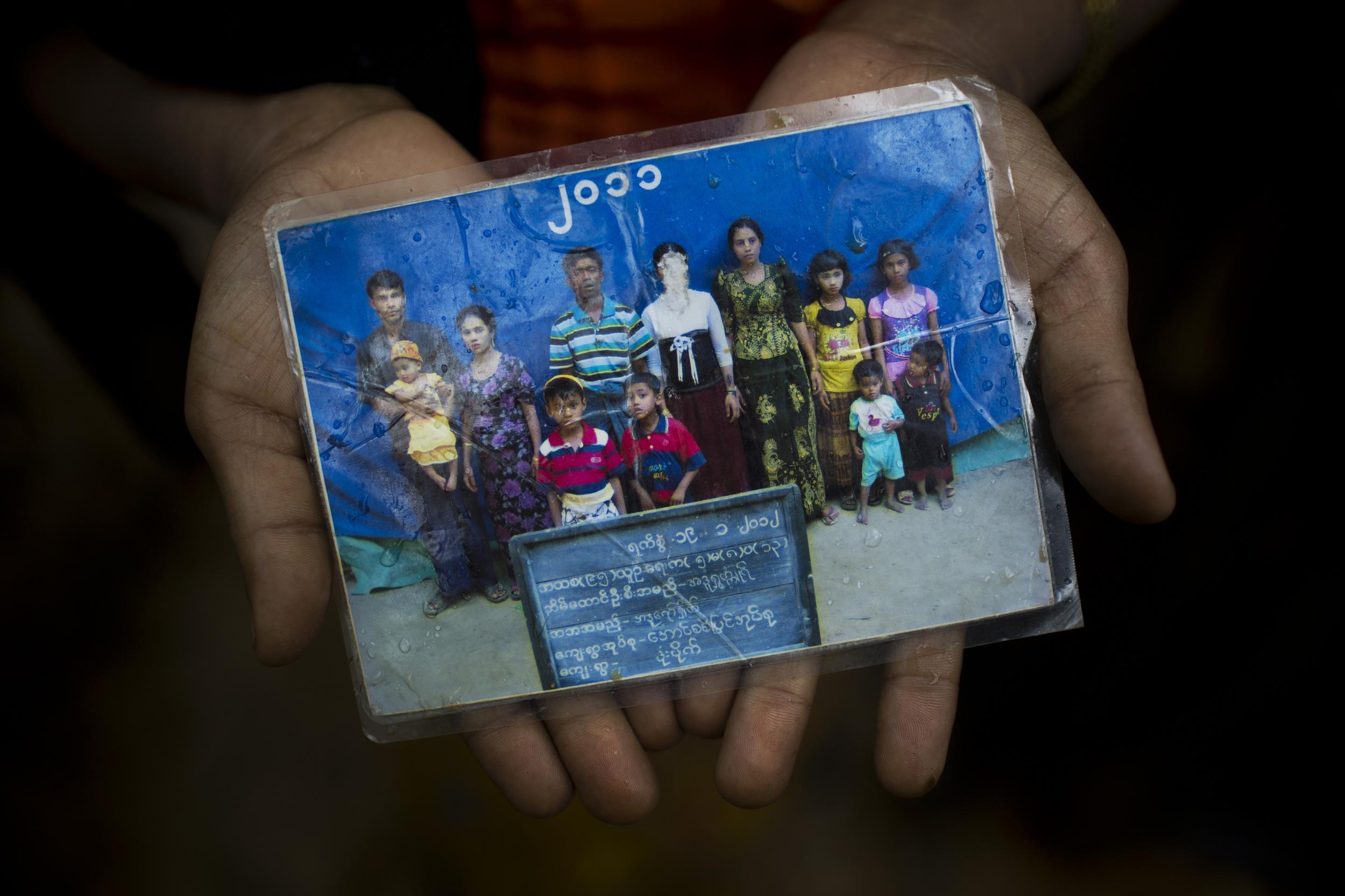Rohingyna crisis: This is what Muslims take with them as they flee violence in Burma's Rakhine state
They pack a few precious items into used sacks and bamboo baskets, then flee on foot through forests, or precarious boats on rain-swollen rivers

Your support helps us to tell the story
From reproductive rights to climate change to Big Tech, The Independent is on the ground when the story is developing. Whether it's investigating the financials of Elon Musk's pro-Trump PAC or producing our latest documentary, 'The A Word', which shines a light on the American women fighting for reproductive rights, we know how important it is to parse out the facts from the messaging.
At such a critical moment in US history, we need reporters on the ground. Your donation allows us to keep sending journalists to speak to both sides of the story.
The Independent is trusted by Americans across the entire political spectrum. And unlike many other quality news outlets, we choose not to lock Americans out of our reporting and analysis with paywalls. We believe quality journalism should be available to everyone, paid for by those who can afford it.
Your support makes all the difference.Mobile phones to reach out to separated relatives. Bags of spices that remind them of home. Solar panels to bring a little light to their ragged tents.
These are some of the things that group upon group of terrified, starving, exhausted Rohingya Muslims carry with them as they escape the violence that they've endured in Burma Rakhine state over the last two weeks.
The exodus began on 25 August, after Rohingya insurgents attacked police posts in Rakhine state. The Burmese government says nearly 400 people have been killed in fighting it blames on insurgents, though Rohingya say they Burmese troops and Buddhist mobs attacked them and destroyed their villages.
They packed a few precious items into used sacks and bamboo baskets, then fled on foot through forests, or on precarious boats on rain-swollen rivers.
Solar Panels
Small solar panels are everywhere in the makeshift refugee camp that has sprouted up to accommodate many of the more than 160,000 people the United Nations says have entered Bangladesh since the violence started.
A little girl carried a panel on her back as she crossed into Teknaf after braving a risky crossing on the Naf River that runs between Burma and Bangladesh. The dark-blue-and-white panels are also perched on the plastic roofs of their shelters.
"We got it so that in the dark we can have some light," said one man.
Others use the solar panel to charge the other possession almost everyone brings:

Mobile Phones
Tied in plastic pouches and hung around their necks, ortucked into the waistbands of their wraparounds, cellphones allow Rohingya to reach relatives who arrived in Bangladesh during earlier waves of fear-fueled migrations from Burma. They also allow them to reconnect with relatives they became separated from along the tricky journeys that bring them to safety.
Memory Cards
Those who don't carry phones still often bring memory cards from their abandoned phones. Some Rohingya said they erased personal photos and videos because they were afraid that Burma soldiers would use them to find and persecute their families left behind.

Spices
Food in the camps is scarce. Most people eat only when the aid agencies or local volunteers bring bags of food, most often rice and watery curry.
But even in these dire circumstances, many Rohingya have brought with them spices from their homeland: pungent red chilies drying on plastic sheets; fiery chutneys in battered boxes; dried beef in bamboo cases.
"Even if all we get to eat is a plate of rice, we can burn a red chili and mix it and it will taste nice," says a woman in the Kutupalong refugee camp.
Birds
Rohingya had to leave behind the vast majority of their livestock. Cattle now wander among the blackened remains of their incinerated homes.
Some weary travelers, however, managed to tuck a chicken, duck or goose into their bags.
Associated Press
Subscribe to Independent Premium to bookmark this article
Want to bookmark your favourite articles and stories to read or reference later? Start your Independent Premium subscription today.
Join our commenting forum
Join thought-provoking conversations, follow other Independent readers and see their replies
Comments